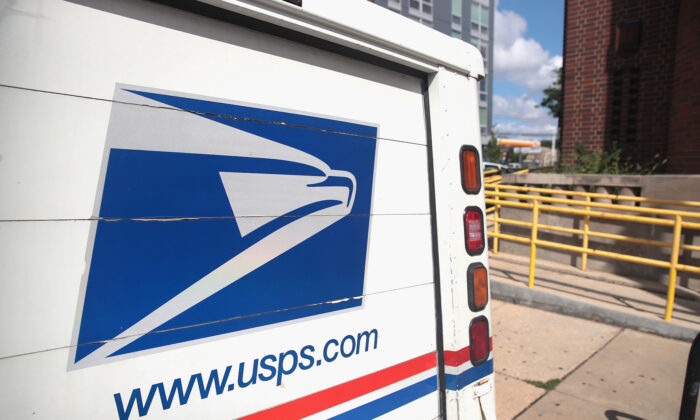
Recent court filings show that the U.S. Postal Service (USPS) will disclose documents about its controversial social media surveillance program, but the government has also indicated it may fight to keep other records secret.
USPS faces several lawsuits from nonprofit groups over its Internet Covert Operations Program (iCOP)—the existence of which was revealed in April when Yahoo News reported on an internal USPS memo about monitoring right-wing anti-lockdown protestors.
Judicial Watch, the Electronic Frontier Foundation (EFF), and the James Madison Project have filed separate complaints against the USPS for failing to fulfill a Freedom of Information Act (FOIA) request for records on the program, while the Electronic Privacy Information Center (EPIC) sued because the government hasn’t conducted a privacy impact assessment for iCOP—a review of what information is collected, why it’s being collected, how the information is used, and how the data is stored.
Recent filings in the Judicial Watch and EFF cases reveal that USPS holds more than 12,000 records related to iCOP. USPS is reviewing which documents it will choose to disclose and which ones it will attempt to withhold from the public.
government proposed consolidating the cases, but a U.S. district judge shot down those talks last month because the nonprofit groups are requesting different documents—raising different legal issues for whether records will be made public.
Judicial Watch, for example, seeks all social media posts that iCOP forwarded to other government agencies, while EFF wants information about any criminal prosecutions that were based on iCOP information. James Madison Foundation, for its part, is also looking for records from the DHS, DOJ, and Office of the Director of National Intelligence about the rationale for creating iCOP.
While USPS may disclose at least some iCOP records in these FOIA cases, it has fought the EPIC lawsuit. USPS filed a motion to dismiss the claim last week, arguing that it’s not required to conduct a privacy impact assessment for iCOP—and that the USPS may not make such records public even if it had them.
“Even if this Court were to require USPS to conduct a privacy impact assessment … USPS would remain free to withhold all or part of that assessment from publication in order to protect against public disclosure of sensitive information pertaining to law enforcement efforts,” the Oct. 19 motion to dismiss said.
Parties in the FOIA lawsuits are to file a status report on the records production by Nov. 22. No dates have been scheduled for the EPIC case.
Along with the litigation, the USPS has also received criticism from some lawmakers over its lack of transparency with iCOP. Chief Postal Inspector Gary Barksdale reportedly briefed lawmakers in a closed-door session in April, but Rep. Nancy Mace (R-S.C.) later said Barksdale was “unprepared to answer our questions to the point of incompetence.”
“Barksdale couldn’t tell us when the program started, how much taxpayers were paying to run it, or even what legal authority the post office had to spy on the public’s social media activities,” Mace said. “He denied iCOP was a program, but said it had an ‘executive’ overseeing it. He said the post office coordinated with other agencies, but couldn’t list a single one.”
Following its initial April report, Yahoo News revealed more details about iCOP in May. According to Yahoo, the USPS used internet surveillance tools to monitor social media to track potential violence at protests following the death of George Floyd.
“After the Jan. 6 riot at the Capitol by Trump supporters, the analysts turned their attention to right-wing accounts,” Yahoo News reported in May.
postal service has defended iCOP as a legal open-source intelligence operation designed to protect its employees.
“This review of publicly available open-source information, including news reports and social media, is one piece of a comprehensive security and threat analysis, and the information obtained is the same information anyone can access as a private citizen,” a U.S. Postal Inspection Service spokesperson reportedly said.
“News report and social media listening activity helps protect the 644,000 men and women who work for the postal service by ensuring they are able to avoid potentially volatile situations while working to process and deliver the nation’s mail every day.”
But the nonprofit groups say that USPS’s surveillance ops have a chilling effect on free speech.
“This lawsuit aims to protect the right to protest,” EFF legal fellow Houston Davidson said. “ government has never explained the legal justifications for this surveillance.
“We’re asking a court to order the USPIS [U.S. Postal Inspection Service] to disclose details about this speech-monitoring program, which threatens constitutional guarantees of free expression and privacy.”
Pezou : Post Office Fights Surveillance Ops Complaints